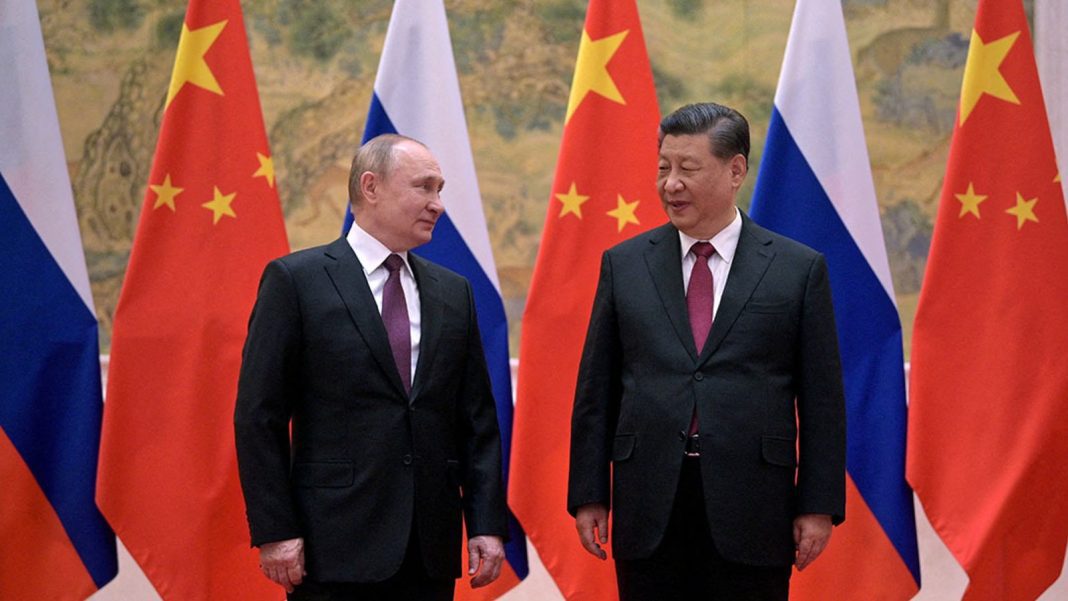Global politics are changing fast. As tensions grow between world powers, many are questioning China’s strengthening partnership with Russia, which is seen as a key part of the China Global Strategy.
China Global Strategy: China–Russia Ties Raise NATO Alarm Bells
NATO, the international military alliance, has recently warned that China might try to distract Western nations by encouraging Russia to open a new front. According to this view, if China plans to take action in the Asia-Pacific—especially in Taiwan—its global strategy could benefit by keeping Europe and the U.S. busy with another crisis.
This concern intensified after recent remarks suggested that China could convince Russia to launch an attack on NATO countries. Military strategists believe that if major Western countries focus on defending their own territories, they might pay less attention to developments in the Pacific.
However, in reality, Russia is already heavily fighting its war in Ukraine. It has stretched its resources thin, and it faces a low chance of launching a second front—especially against NATO. But history shows that big powers have used diversions and distractions in the past to gain advantages. So, while the possibility exists, it remains mostly theoretical for now.
Central Asia Faces Turmoil as US Europe and China Russia Compete for Power
Disinformation Allegations Stir Debate in Europe
A different concern involves the spread of false information—known as disinformation. European officials recently pointed fingers at China for allegedly running an online campaign to make French military jets, known as Rafales, look bad. This happened after tensions between India and Pakistan rose, leading to debates about which country’s weapons were most reliable.
The timing led some experts to suspect China’s role, possibly to promote its own fighter jets like the JF-17 and J-10. Disinformation is now widely seen as a tool used by powerful countries to influence global opinion and boost their own industries.
Trump’s G9 Plan With China and Russia—A Risk to Western Unity?
In this case, if people start believing that French jets are unreliable, they might consider buying Chinese aircraft instead. This could benefit China’s defense export business. But until clear public proof is shown—such as leaked files or technical evidence connecting the activity directly to Chinese authorities—the allegation remains uncertain. Still, it reflects growing concerns in Europe about how China is using influence, soft power, and digital tools to shape opinions in its favor.
China Global Strategy: Ukraine War Serves Strategic Interests
China’s response to the ongoing war in Ukraine has also become a subject of global analysis. Experts say that China may be quietly benefiting from the conflict in several ways, even without being directly involved.
Firstly, the war keeps Western countries—especially NATO and the United States—busy. Their attention, money, and weapons are being used in Europe, not Asia. This means there are fewer resources available to focus on the Indo-Pacific region, where China is also expanding its presence.
Secondly, the war makes Russia more dependent on China. With many Western countries cutting ties with Russia, China has become a key buyer of its oil, gas, and other resources. This helps China get energy at a lower cost while strengthening its position as Russia’s main economic partner.
China secretly warns EU: A Russian defeat would bring U.S. pressure on Beijing
Lastly, long conflicts like the one in Ukraine create cracks in the global order. Rules, partnerships, and systems that have been in place for years start to shift. This creates space for new players to gain influence. China could take advantage of this to shape international systems in a way that supports its long-term interests.
But this situation isn’t without risks. Long wars can lead to economic problems around the world, including rising prices and unstable markets. China, like every other country, could face challenges from these changes. Still, based on what’s visible, China doesn’t appear to be trying to stop the conflict—in fact, some suggest it may quietly prefer the war to continue.

